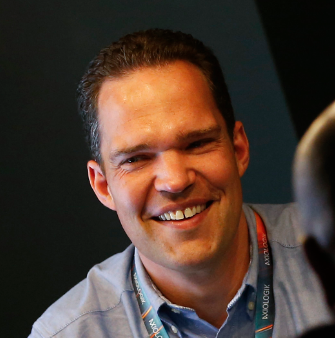It’s that time of year, when Business Link Magazine invites the region’s business leaders to offer up their predictions for the year ahead.
It has become something of a tradition, given that we’ve been doing this now for over 30 years.
Here we speak to Graham Self, principal enterprise architect at Axiologik.
As 2024 unfolds, consumers will intensify their demand for personalised financial support amidst rising interest rates and inflation. Banks, vying for market share, will heighten competition with greater incentivisation and rewards to break traditional loyalty patterns. The Bank-as-a-Service model will gain traction, integrating financial products seamlessly into diverse applications beyond traditional banking settings. Larger banks with a global presence will offer connected global propositions, facilitating cross-border banking experiences. Catering to customers’ evolving lifestyle needs, financial institutions will forge partnerships to provide ethical, affordable, and personalised finance solutions, extending their reach far beyond conventional boundaries.
In 2024, neobanks will extend their success by diversifying product portfolios, and integrating lending, wealth management, and trading services while maintaining a focus on self-service. The agility of neobanks will make wealth management and trading more accessible to a broader audience. Simultaneously, legacy banks will compete by hyper-personalising products and services through AI-driven insights. Positioning themselves as ‘trusted advisors’, legacy banks will rebrand branches as specialist hubs, offering value-added services. While both neobanks and legacy banks move towards self-service, legacy institutions will leverage their unique advantage in supporting customers through economic challenges, emphasising personalised care.
The rush towards adopting AI is understandable, but it seems that the spotlight has been solely on the technology itself, causing organisations to overlook the actual outcomes AI is designed to achieve — the very reasons we embrace and find excitement in it. Looking ahead to the coming year, beyond the initial AI hype, we anticipate a notable pivot towards experience-led strategies, positioning AI as a facilitator rather than the focal point. Instead of viewing AI in isolation, businesses will emphasise the seamless integration of AI into processes, optimising workflows, and boosting overall efficiency. This paradigm shift reflects a more comprehensive perspective, recognising that the genuine value of AI lies not in its novelty but in its capacity to streamline operations, empower employees, and ultimately deliver an unparalleled and more efficient customer service experience.



